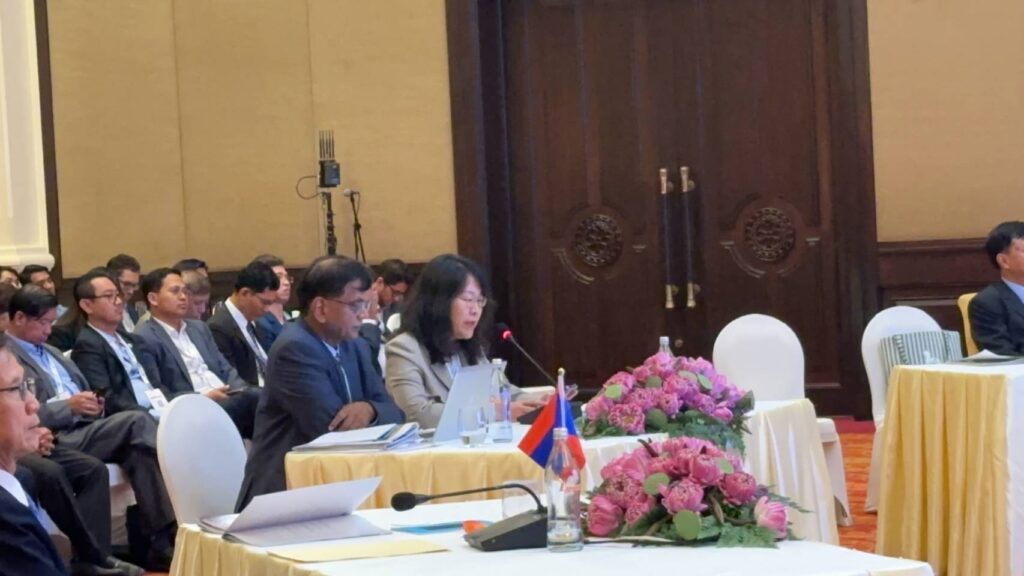Mekong Institute (MI) participated in the 6th Greater Mekong Subregion (GMS) Environment Ministers’ Meeting (EMM6) held from September 10 to 13, 2024, in Phnom Penh, Cambodia. Under the theme “Accelerating Climate Change Response Actions and Promoting Environmental Sustainability,” the meeting brought together GMS Environment Ministers, senior officials, and key stakeholders from across sectors to tackle pressing environmental challenges and set regional priorities.
Represented by Ms. Guohua Liu, Director of the Sustainable Energy and Environment Program, and Ms. Than Tha Aung, Senior Program Coordinator, MI contributed to discussions reflecting on the achievements and lessons from the GMS Environment Program Phases I-III (2006-2025) and engaged in technical sessions focused on regional priorities for action up to 2030 and beyond.
Key events included the 28th Annual Meeting of the GMS Working Group on Environment (WGE), which reviewed progress in environmental quality management, low-carbon technology financing, and climate-resilient infrastructure. The meeting also explored next steps for the program, aiming to endorse the GMS 2030 Strategic Framework for Accelerating Climate Actions and Environmental Sustainability, as well as the Phnom Penh Joint Statement on the Prevention of Plastic Pollution in the GMS.
During a development partner dialogue, Ms. Liu highlighted MI’s commitment to promoting sustainable development and regional integration in the GMS. She emphasized that over the past three years, MI has implemented more than 10 environmental projects, engaging thousands of participants and beneficiaries. These initiatives focused on climate adaptation, low-carbon transition, pollution control, and nature-based solutions to strengthen resilience and sustainability across the subregion.
In a technical session on plastic pollution, Ms. Aung presented MI’s flagship project, Leading the Charge Against Single-Use Plastics, which aims to reduce plastic waste in markets and street vending areas in Thailand. She noted, “Addressing plastic pollution requires collective action from all sectors. Our projects have shown that localized solutions, combined with education and technological innovation, can make a significant impact.”
On the final day of the EMM6, MI reaffirmed its support for the GMS environmental agenda. “MI strongly supports the GMS 2030 Strategic Framework, emphasizing the importance of climate action and environmental sustainability as essential pillars for achieving resilient and sustainable growth in the GMS. We are committed to collaborating with GMS countries, stakeholders, and development partners to promote research, translate policies into actions, and foster synergy across the region,” Ms. Liu emphasized.
Hosted by Cambodia, the 6th GMS Environment Ministers’ Meeting was a key event for advancing regional environmental goals. The meeting spurred collaborative efforts and put forward actionable strategies, setting the groundwork for enhanced sustainability and climate resilience across the GMS.








